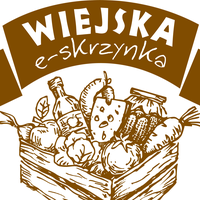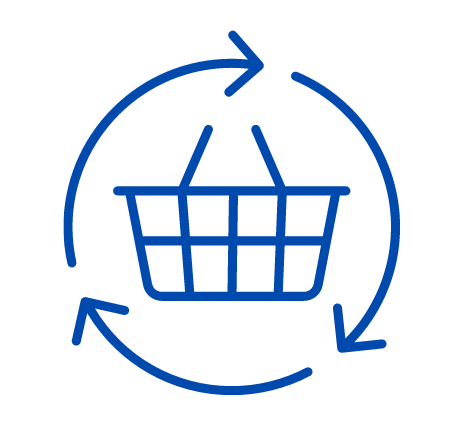The Pomerania and Kujawy region are one of the most agriculturally developed areas of Poland with a long tradition of producing for the market, but at the same time many farms are currently too small to make a living from their production. This problem is also known to agricultural advisors, which is why a sales platform was created at the Kujawsko-Pomorski Agricultural Advisory Centre in Minikowo (KPODR) under the project entitled ‘Innovative model of cooperation of agricultural producers within short supply chains’ for small producers who could directly reach consumers without intermediaries. The initiator and coordinator of the described project is the KPODR in Minikowo. In 2021, the sale of the first products was launched via the online platform Wiejska e-skrzynka (Rural e-box). This initiative enabled the launch of an additional sales channel for small agricultural producers who, thanks to this undertaking, were able to reach a larger group of customers and reduce the costs associated with the distribution of their products. The costs involved in setting up the platform were so high that normally an individual farmer could not afford to set up such a tool.
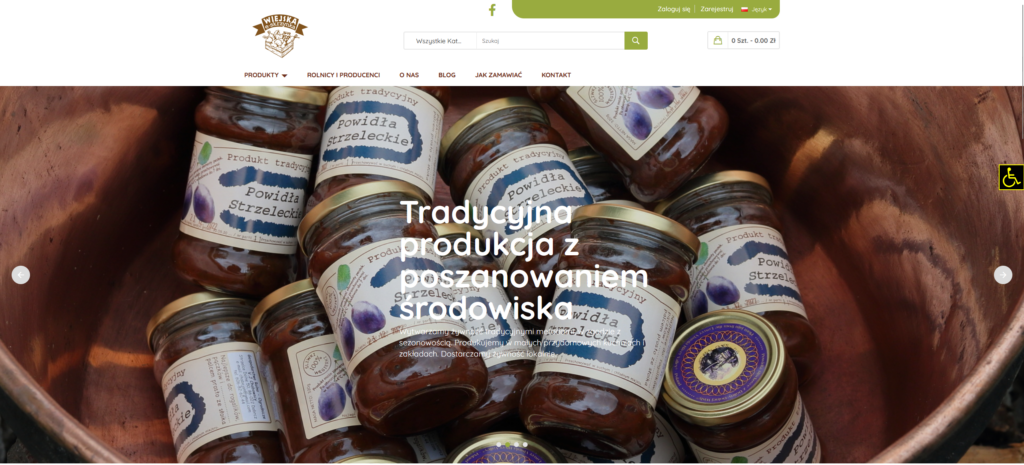
Farmers and processors of quality food, produced using traditional methods, in line with seasonality and meeting current food safety standards, were invited to sell on this Wiejska e-skrzynka platform. Important in terms of maintaining freshness and sustainability was the purchase of a refrigerated truck for order handling.
The fertile and flat terrain is conducive to the cultivation of various plant species, which translates into an available range of more than 130 plant and animal products with different levels of processing. Products are delivered within Bydgoszcz and the surrounding counties. To minimise handling time and costs, deliveries are made once a week on Thursdays and orders can be placed until midnight on Monday. This allows farmers to prepare the right amount of produce, which minimises the level of food waste. An important innovation of the Wiejska e-skrzynka is the idea of creating multi-person buying groups that have orders delivered to one agreed location.
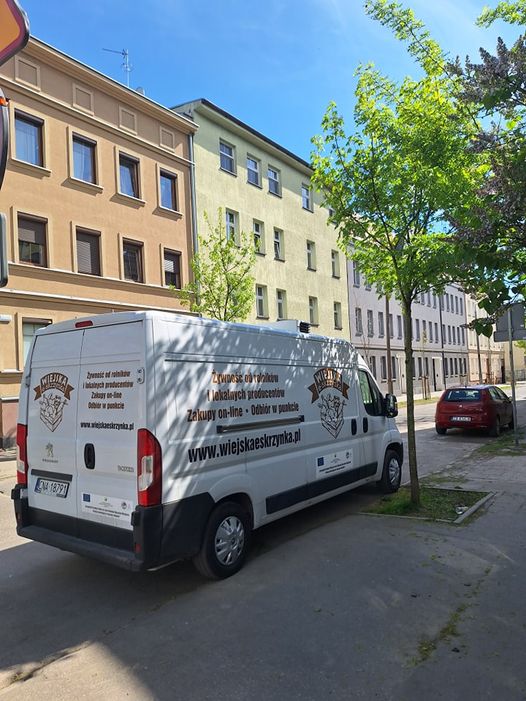
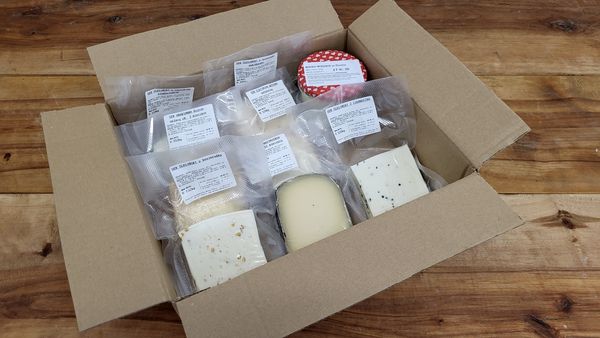
One of the key elements is food safety and the mutual trust of the sellers on the platform, who are assessed by all producers. For this reason, production takes place under the constant supervision of the relevant inspections (SANEPID, Veterinary Inspection) and the Internal Quality Assurance System of the Wiejska e-skrzynka, which was developed for the producers associated in the Wiejska e-skrzynka sales group. This system consists of mutual audits in terms of ensuring the appropriate production and hygiene conditions of the producers involved. This fosters not only business ties, but friendship and the exchange of experience, which translates into the wider development of the group and local agriculture.
SUCCESS FACTORS
Direct selling: The Wiejska e-Skrzynka platform enables small agricultural producers to sell directly to consumers, eliminating intermediaries and ensuring fairer prices for both farmers and buyers. By creating an additional sales channel, the initiative helps small farms reach a wider customer base while reducing distribution costs. The platform’s cost-effective model provides an opportunity that individual farmers would not have been able to afford on their own, making direct sales more accessible and financially viable.
Commitment to food quality and safety: Trust and quality assurance are the key pillars of the Wiejska e-Skrzynka initiative. All participating farmers and food processors operate under the supervision of SANEPID (State Sanitary Inspection), Veterinary Inspection, and the platform’s Internal Quality Assurance System. This system includes mutual audits among producers, ensuring high standards of hygiene and production conditions. This transparent and collaborative approach builds strong relationships between sellers and fosters consumer confidence in the products offered.
Sustainable and seasonal production: The platform supports farmers who use traditional and seasonal farming methods, prioritising natural growing cycles and food safety. With over 130 different plant and animal products available at varying levels of processing, consumers have access to diverse, high-quality local produce. A refrigerated truck was also purchased to maintain freshness during delivery, ensuring that all products meet high food safety standards.
Reducing food waste through smart logistics: Orders are collected once a week, with farmers receiving orders in advance to prepare the right quantity of produce. This system minimises food waste and prevents unnecessary overproduction. In addition, deliveries are made in returnable crates, which are thoroughly washed for each delivery and reused for subsequent orders.
Collaboration and knowledge sharing: The Wiejska e-Skrzynka model goes beyond sales; it fosters a community of farmers and food producers, who exchange knowledge, experiences, and best practices. Through mutual audits and regular interaction, producers develop not only business connections but also friendships, strengthening local agriculture and encouraging innovation.
Strengthening local food systems: By focusing on short supply chains, the platform enhances local food production and consumption, reducing the distance between farms and consumers. The majority of participating farms are located within Bydgoszcz and its surrounding counties, ensuring fresh, high-quality products with minimal transportation time. This also strengthens the bond between producers—currently 21 dedicated farmers—and their 600 loyal customers, many of whom are committed to supporting local agriculture and regional food traditions. A unique feature of Wiejska e-Skrzynka is the ability for customers to create shopping groups, allowing them to coordinate bulk orders for their community. As group coordinators, they benefit from individually agreed discounts, making local and sustainable food even more accessible.



